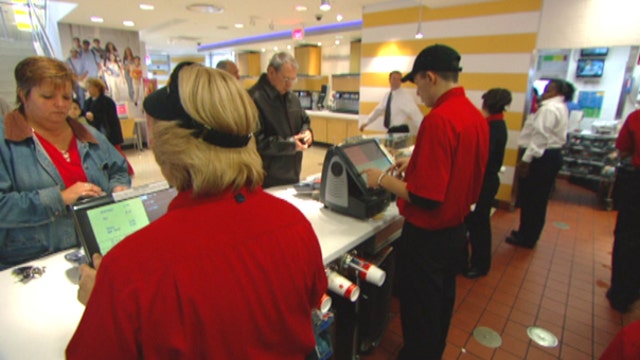How Michigan Just Drove its Promising Recovery Off a Cliff
Forget about whether now’s the time for this country to raise the minimum wage. Is now the time for “Michigan” to do it? Because while much of the country is enjoying a recovery, albeit a tentative one, Michigan is not. And Detroit, despite its impressive comeback, is hardly firing on all cylinders.
Michigan’s unemployment rate remains one of the highest in the nation, at 7.4%. Detroit’s is almost double that at north of 14%.
Things have gotten so bad in the Motor City that they’re almost giving away homes for $1,000. You got the cash -- and promise to fix up what you buy -- you’ve got a deal.
It’s a good deal for maybe some long-term real estate investors. But they’re betting their own money. The state of Michigan demanding businesses do the same with “their” money is another matter entirely.
But no matter, Michigan is raising the minimum wage, from $7.40 an hour to $9.25. Republican Gov. Rick Snyder insists it won’t be drastic, because it won’t happen fast. The increase will be phased in and won’t hit $9.25 until 2018.
After that, the minimum wage will be tied to inflation, assuring steady increases that the governor hopes make this political hot potato go away.
Many business experts aren’t so sure, especially in a state whose own dicey recovery isn’t so set. The fact is, Michigan is still hurting. Forget the official jobless figures -- unemployment among Michigan youths, and particularly minority youths, remains at or near 20%.
That’s substantially higher than other states that have just hiked their minimum wage, including Connecticut and Hawaii.
Former Verizon Wireless COO Denny Strigl says there’s never a good time to force a wage hike down bosses’ throats, “but for some states still in a world of hurt, this is the worst time to do it.”
And let’s be clear: Michigan is facing a world of hurt. Maybe not as much hurt as right after the meltdown, but it’s still hurting. So Strigl asks, do you really want to be driving businesses’ costs up?
Slowly or not, the state has now mandated that Michigan’s businesses better start paying up. Never mind many employers there are lucky if they can keep their doors open -- could this move lead some of them to pack up and leave?
It’s too early to say, but this much is not: even before the proposed wage hike, small businesses across the state have been sucking up double-digit hikes in healthcare and related costs. Some have reconsidered providing healthcare to their workers at all. Still others are paying fines for not offering such coverage, because it’s still cheaper in the long run.
Snyder insists these anxieties will ease, and the proof is in the state’s improving economic numbers. He’s right things are getting better. But they’re not exactly the best. And for whatever predictability business leaders get out of knowing what that minimum wage will be this year and next year and the year after that, the reality is this: Businesses aren’t exactly migrating to Michigan “now.” And there’s little coming down the pike from government that will change any of that soon.
Snyder points to some promising signs, including JPMorgan Chase (NYSE:JPM) investing $100 million in Detroit as proof the city is showing promise.
Then there’s Steve Case, who just announced he’s including Detroit in his “rise of the rest” American tour that will herald startups in cities long overlooked. It’s a chance for some lucky visionary to walk away with $100,000.
It’s a great nod to Detroit and to Michigan. But that’s Case spending his money, just like it’s JPMorgan investing its money.
Telling businesses across the state they have to pay up more money, when they don’t have a lot of money… that’s not so “sure” money. Because unlike “Case and Chase,” Motor City businesses aren’t exactly lapping the economic race.
That could change. But first it requires these businesses having some spare change. Many don’t. So forget about whether they’ll hire workers at that higher wage; the bigger worry is whether they’ll keep the workers they have … at the present one.




















